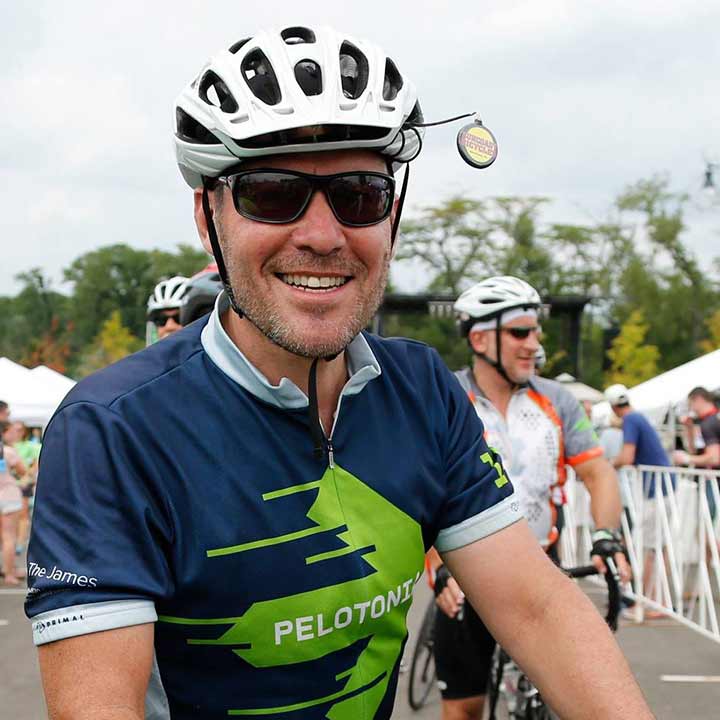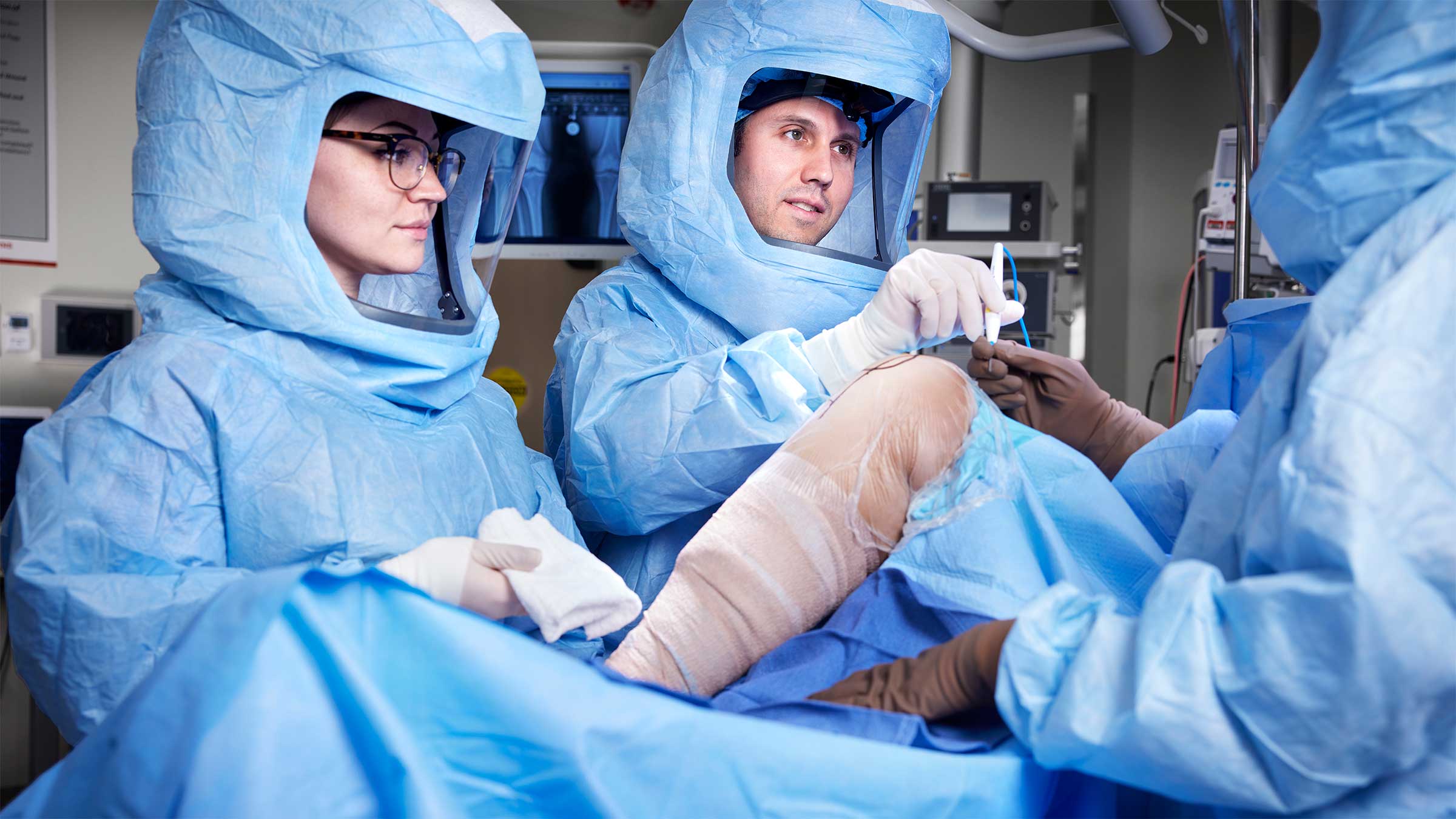Setting a new standard for state-of-the-art colorectal cancer care
Top cancer surgeon is establishing Ohio State as a destination for colorectal cancer treatment.
The call for help came from a friend of Timothy Pawlik, MD, PhD, MPH, the chair of the Department of Surgery at The Ohio State University Wexner Medical Center. Dr. Pawlik often gets such calls from anxious, scared family, friends and colleagues who have just heard those three life-changing words: “You have cancer.”
He didn’t hesitate, and he immediately connected his friend with Matthew Kalady, MD.
“He wanted to be treated at a premier cancer center and was willing to travel anywhere,” Dr. Pawlik says. “I recommended Matt, and he got an appointment. But, before he met with Matt, he reached out to several other leading cancer centers for another opinion. They all told him the same thing: ‘You’re already in the best place with the best doctor.’ He called me back later and said, ‘Dr. Kalady is amazing, thanks for putting me in touch with him.’”
Dr. Kalady is one of the nation’s top colorectal cancer surgeons and researchers. In his new role as director of the Division of Colon and Rectal Surgery at The Ohio State University Comprehensive Cancer Center – Arthur G. James Cancer Hospital and Richard J. Solove Research Institute (OSUCCC – James), he strives to improve the already outstanding colorectal cancer program, expand the surgical and research staffs, increase genetic screening and counseling, and organize a new, state-of-the-art, dedicated Colorectal Cancer Center.
“This was a fantastic opportunity to help raise things to another level clinically and academically,” Dr. Kalady says of his decision to leave the Cleveland Clinic and join the OSUCCC – James in this expanded leadership role. “I wanted to go somewhere where I could use my experience and skill sets to make a big impact and a difference.”
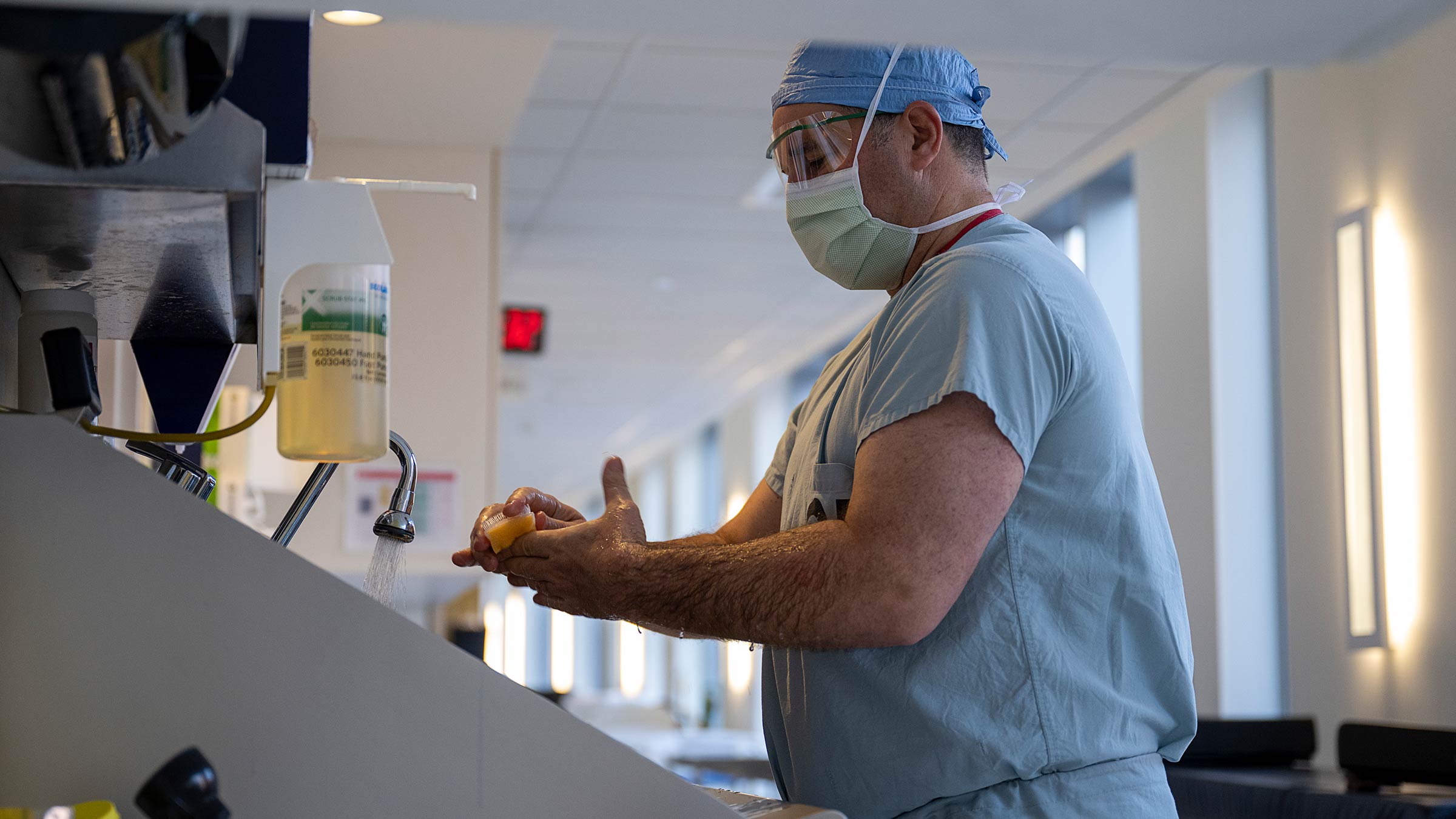
Making a game plan
Dr. Kalady grew up in Allentown, Pennsylvania, the youngest of Richard and Maria’s four children. He was valedictorian of his class as well as an outstanding high school athlete at Allentown Central Catholic, the quarterback on the football team, point guard on a state championship basketball team and a baseball standout.
“Grit and determination have gotten me further than any of my other talents and I think that comes from sports,” he says. “I’m an inherently driven person and I love the competition of sports, the comradery and what it teaches you; how to solve problems and come up with a game plan.”
Chance meeting changes the course of Dr. Kalady’s career to focus on colorectal cancer
Dr. Kalady attended Harvard University, then medical school at Duke University School of Medicine, followed by a general surgery residency at Duke University Medical Center. His initial interest was orthopedic surgery, but his experience working with general surgeons changed his mind. “The general surgery residents at Duke were the best; I could tell they were a different breed,” Dr. Kalady says. “They were no-nonsense, and they got the job done and I wanted to be like them.”
At the time of his training, the surgical specialty of colorectal surgery was not as present in academic centers.
“When I was a mid-level resident, a new faculty member who was trained specifically in colorectal surgery joined our team,” Dr. Kalady says. “He was technically a great surgeon and his enthusiasm for what he did was contagious. That changed everything for me. As I learned more, I really grew to appreciate the variety of colorectal surgery. You can treat people with cancer or benign diseases, do large or small operations, and get to know your patients.”
Colorectal surgery offered another plus: “You could really make a difference in someone’s life,” Dr. Kalady says. “You could operate, cure their cancer and give them back the rest of their lives.”
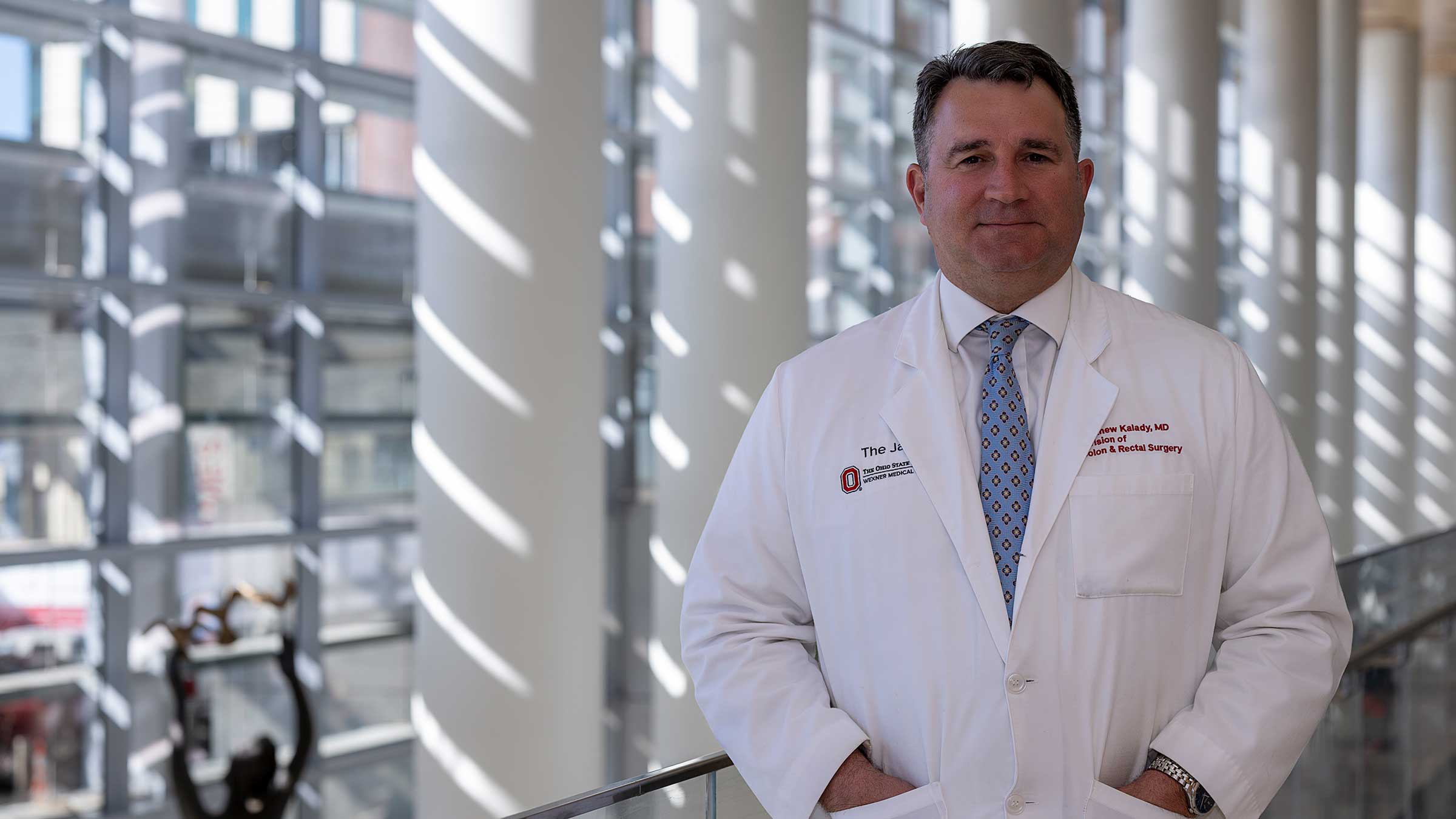
Finding an ideal opportunity to lead colorectal cancer at Ohio State
Dr. Kalady did a colorectal surgery fellowship at the Cleveland Clinic, where he remained for 15 years as faculty and the co-director of the hospital’s Comprehensive Colorectal Cancer Program.
Meanwhile, at Ohio State, Dr. Pawlik was leading recruitment efforts to find a new director of the Division of Colon and Rectal Surgery. All paths seemed to lead to Dr. Kalady.
“We undertook a very thorough national search and reached out to the top leaders in the field,” Dr. Pawlik says. “Matt’s name came up over and over … and everyone here immediately recognized how transformational he was as a surgeon, researcher and leader.”
Dr. Kalady had been recruited by several other leading cancer hospitals over the years, but had always declined. The Ohio State opportunity seemed ideal. “I was attracted to the academic surgical model where we don’t just take care of patients, but there’s also a big emphasis on research and clinical trials, and teaching the next generation of surgeons,” he says. “The leadership has great vision and a commitment to be among the best in the country.”
Dr. Pawlik calls Dr. Kalady a triple threat, because he’s an outstanding surgeon (“He’s technically superb and takes on difficult cases”), a teacher/mentor (“He’s trained many of the top colorectal cancer surgeons who are now leaders in the field”) and a researcher (“He’s a true surgeon-scientist, understands the importance of basic science and how it translates in improved treatment options”).
There’s a fourth element that motivates Dr. Kalady. “What has always driven me is treating my patients as if they were a member of my own family,” he says.
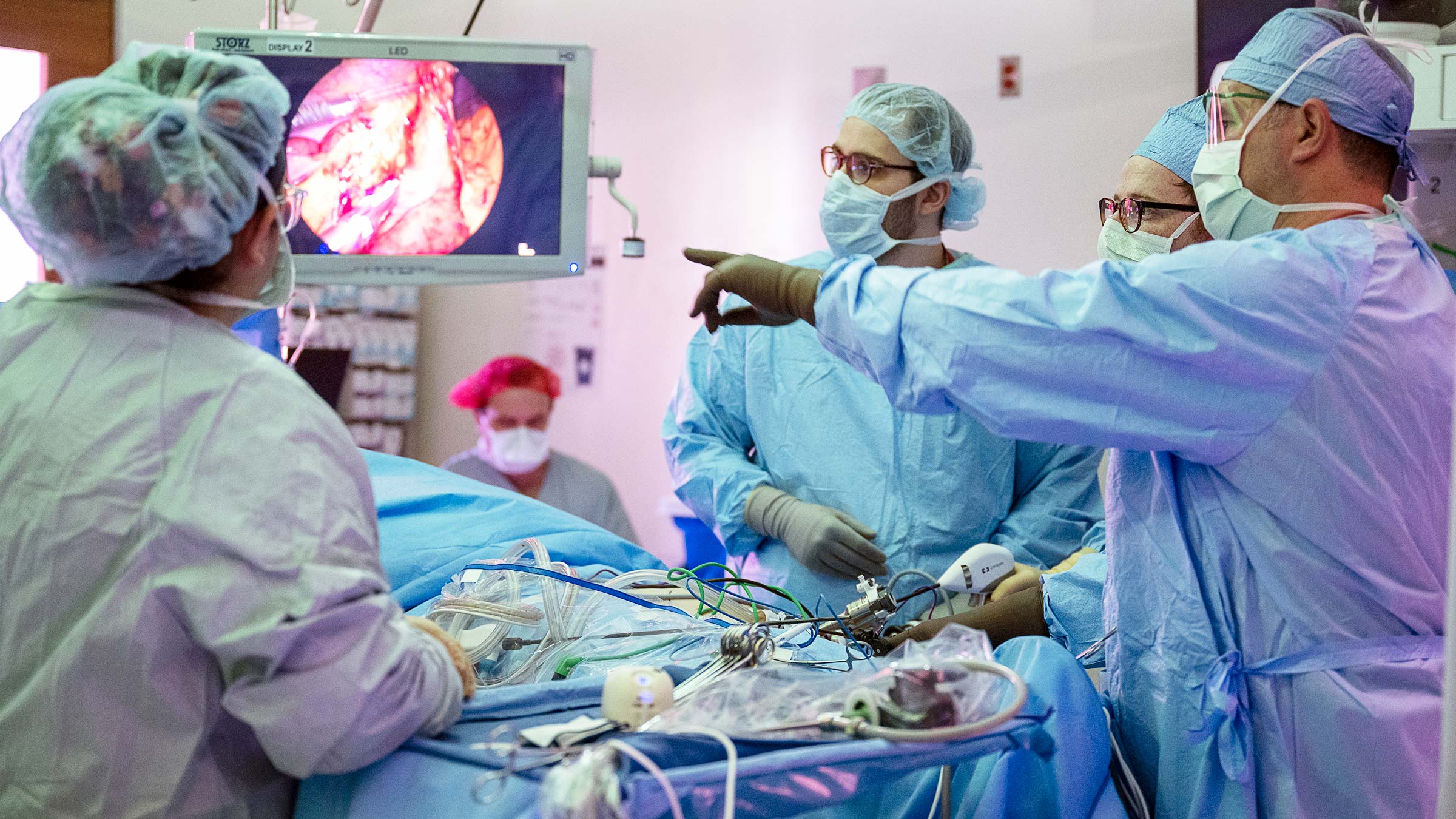
Building a colorectal cancer center
Dr. Kalady hit the ground running at the OSUCCC – James.
“Matt is a team builder,” Dr. Pawlik says. “He’s a glue type of person and really bonds people together.”
“One of Matt’s biggest strengths is bringing people together and changing the way we think about the delivery of care,” says David Cohn, MD, the interim chief executive officer and chief medical officer of The James Cancer Hospital and Solove Research Institute. “That’s why we’ve tasked him to not only focus on and help lead the genetics of colorectal cancer and how we screen for this, but for all the cancers we screen for genetic mutations.”
Dr. Kalady’s plans begin with research
“That’s the beauty of being part of this university,” he says. “While many hospitals deliver the standard of care, we strive to develop the new standard of care.”
His lab’s research focuses on the genetics of colorectal cancer and how certain genetic variants or changes affect the development of cancer and the response to therapy. Some inherited genetic mutations cause hereditary colorectal cancer syndromes such as Lynch syndrome and FAP (familial adenomatous polyposis). These patients have much higher chances of developing colorectal cancer; in some cases, the risk is 100%. Dr. Kalady and his team also explore ways to personalize the surveillance and prevention in these patients by studying their genes, and the polyps and cancers they develop.
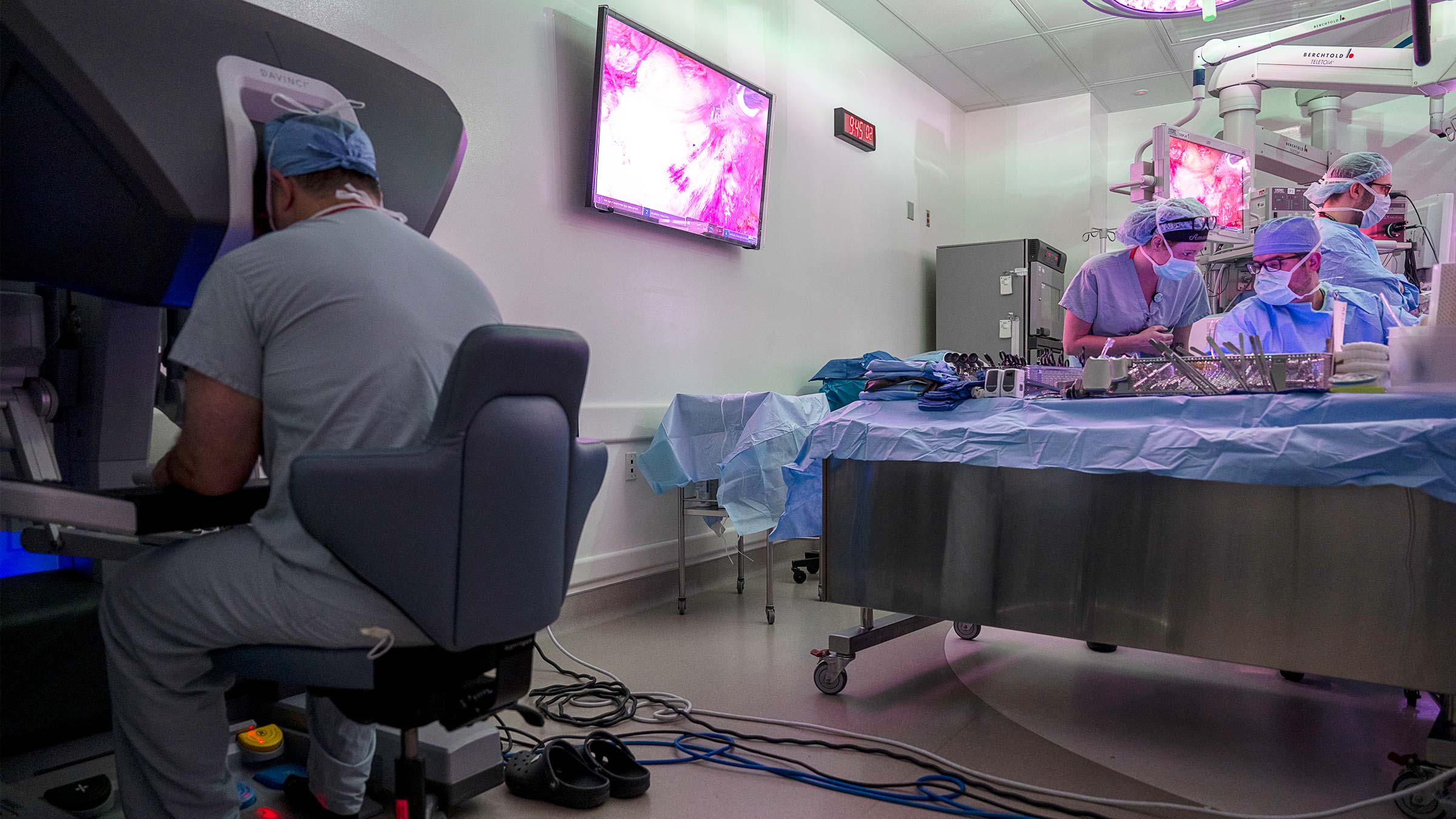
His other research seeks to understand the reasons why patients respond differently to the same treatments. “We’ve identified some genetic changes that occur within rectal cancers that lead to a worse response to radiation, and we have shown in laboratory models that we can improve the response by altering these pathways,” Dr. Kalady says. “We are working and collaborating with outstanding scientists at Ohio State to identify and develop drugs that inhibit these pathways and ultimately improve patient outcomes.”
The Colorectal Cancer Center, one of the first focused centers in the country, is scheduled to open in summer 2023. “I’m very excited about the center. It will be a program where patients can come from all over Ohio and beyond for comprehensive team-based care for colon cancer,” Dr. Kalady says, adding that there are several main focus areas that emphasize multispecialty expertise and offer unique services. These include:
- genetic counseling and testing services for all patients with colorectal cancer
- management of locally advanced rectal cancer (including nonoperative approaches)
- novel approaches for metastatic colorectal cancer
- unique services for young patients with colorectal cancer
- specialized clinics for the management of patients and families with hereditary colorectal cancer syndromes
- anal cancer screening for high-risk individuals
Gift of ‘three more years with their dad’ inspires sisters to support Dr. Kalady’s work
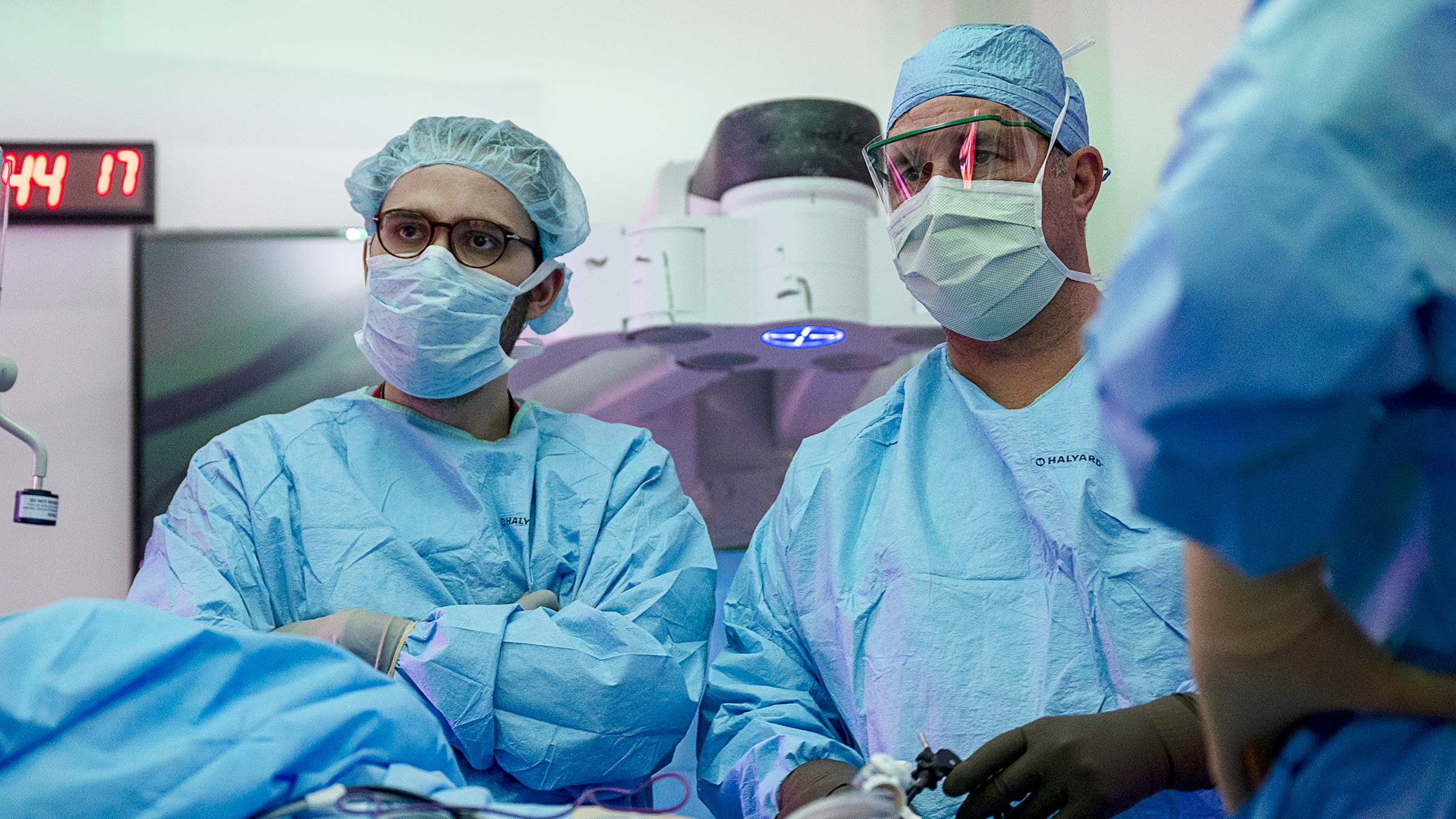
The personal cancer connection
Like so many others, the Kalady family has been impacted by cancer. Dr. Kalady’s father died from cancer of the appendix in January 2022. Richard Kalady was initially treated at the Cleveland Clinic, but he transferred his care to Ohio State and lived with his son and his family for several months after they moved to central Ohio. His mother, Maria, was diagnosed with pancreatic cancer, which is currently being controlled with treatment.
“Nothing impacts you more than seeing the people you love going through treatment and being in a cancer hospital,” Dr. Kalady says, adding it reinforced his philosophy that his patients and their families come first and foremost. “We want to do everything we can do for them and continue to do the research that finds new and better treatments. We want them to leave here saying that the care and the treatment they received was second to none.”

Accurate, early cancer diagnosis matters
The James Cancer Diagnostic Center gives patients direct, expedited access to diagnostic testing and consultation with Ohio State cancer experts.
Schedule an appointment today



